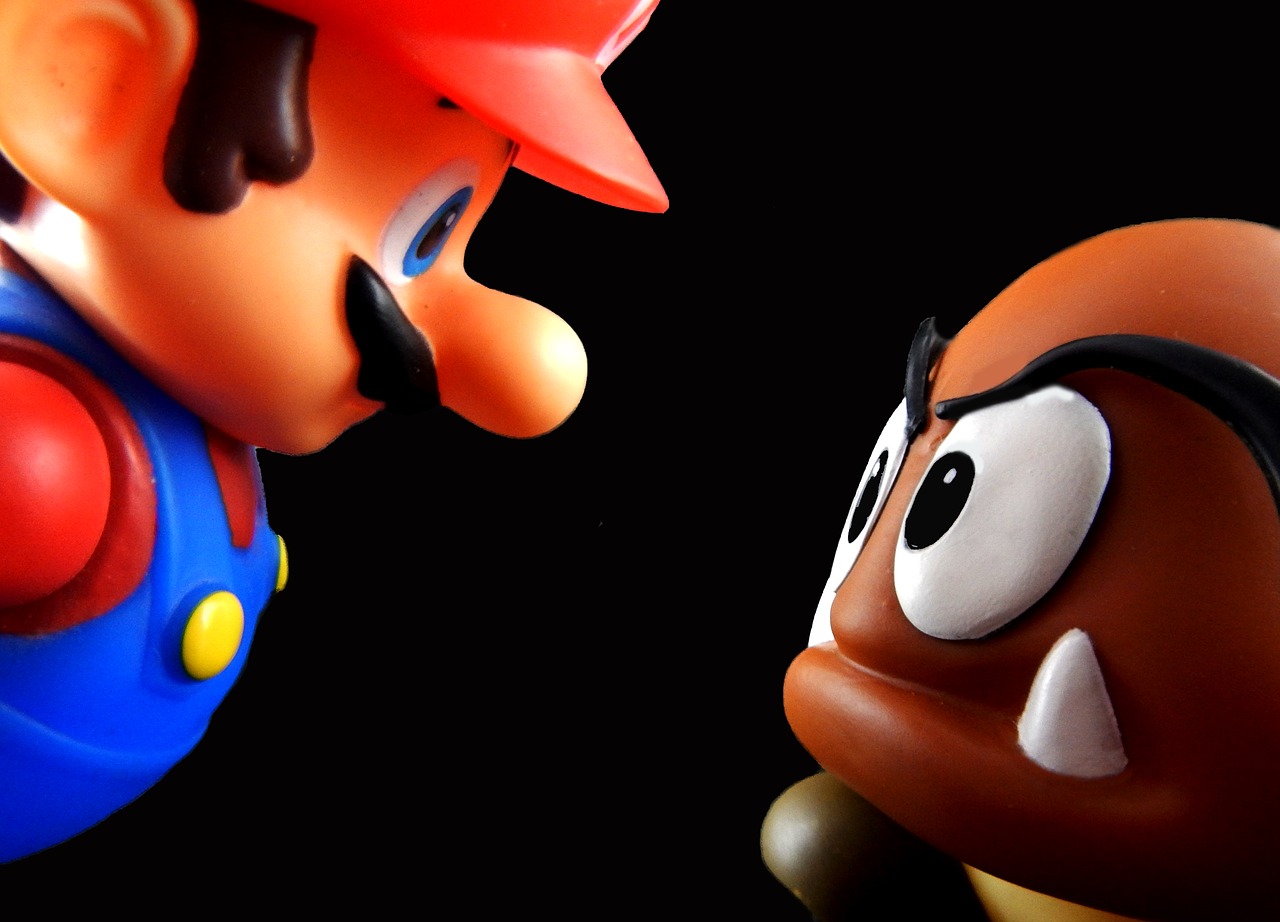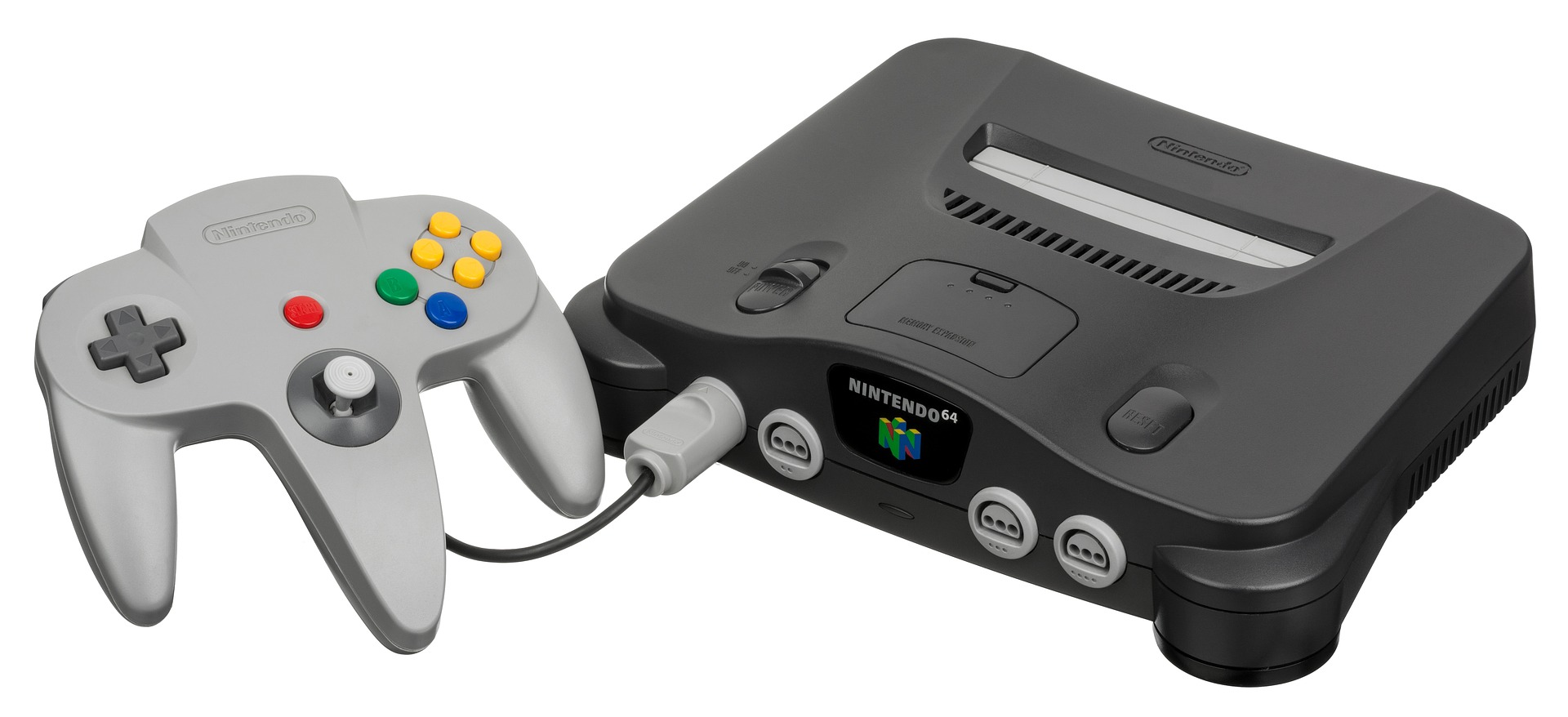The four stages of addiction are categorized as experimentation, regular use, risky use/abuse, and addictive dependency. I cycled through the first three stages repeatedly throughout my teenage years and the starting point was my freshman year of high school when Mom gave me a brand new Nintendo 64.
 If you want to skip over the worst years of parenting a teenager – the hormonal changes and attitude swings – just up your family investment in video games. Fair warning though: be prepared for a corresponding immediate drop in his hygiene.
If you want to skip over the worst years of parenting a teenager – the hormonal changes and attitude swings – just up your family investment in video games. Fair warning though: be prepared for a corresponding immediate drop in his hygiene.
You’ll notice a change in social habits too as new friends start coming over looking for a turn or to get a sample from his personal stash. Sure, the basics are all the same: everyone has Mario and Madden Football, but sometimes every user needs something new like Star Wars to ramp things up, or the calming rhythms of PGA European Golf to bring things down.
And although it may not seem possible, this obsession will even lessen your teenage son’s interest in sex, which is fitting because it also lessens his attractiveness to girls. You’ll know the strategy has firmly taken root when your son spends more time chasing Zelda than actual girls.
Video games were a prominent part of my life between the ages of five and twenty-three. I rarely play them anymore (only socially, I swear), but I’ll never forget the rush. Sometimes, late at night, I still hear the sound of Sonic collecting golden rings.
The mere sound of the opening “EA Sports.. It’s in the game” still sends a rush of dopamine coursing through my veins.
The worst anxiety I’ve ever felt in life is when a video game fails to start three or more times in a row. Large parts of my formative years were spent frantically blowing into video game cartridges as if I were performing CPR.
Despite bringing me to the brink of addiction, my video game obsession had an overall positive impact on my development. I learned how to handle failure and loss without giving up. I saw tangible rewards for persistence and grew confidence for solving complex problems.
Despite my complete lack of athletic talent, sport video games evened my playing field with people who were bigger, faster, and stronger than me – allowing me to compete with them and sometimes win.
For pure competition equality, there was no game better than Goldeneye, one of the first to have battle mode for two to four players. Based on the 007 James Bond movie, Goldeneye provided a pure contest of cunning, wits and skill taken far beyond anything that I’d previously experienced.
Both offense and defense took on equal importance. Any of my peers can relate to the struggle of choosing between going for the weapons cache or choosing to hoard the body armor resupply in a race to be the first to get ten kills.
The way a person played Goldeneye told you everything you needed to know about their character. We built our own system of honor around the conflict settings. The golden gun was my ultimate limit. One shot kills? That has no place in a video game.
 We also frowned on crouching or choosing Odd Job (the shortest character who most bullets missed) as acts of selfishness that stripped honor from the equation. And for those who had no honor, the fickle fate of proximity mines pulled them back from the brink of excess.
We also frowned on crouching or choosing Odd Job (the shortest character who most bullets missed) as acts of selfishness that stripped honor from the equation. And for those who had no honor, the fickle fate of proximity mines pulled them back from the brink of excess.
I sometimes contemplate returning to my video game obsessed ways, but I can no longer relate to the lifestyle that had so much spare time. Maybe that’s because back then I never sat around like this writing about my feelings.
My nephews are getting older now and video games might be a way to stay connected with them. I recently annihilated them three-at-a-time at Mario Kart, but I doubt my advantage will last much longer.
If I try to keep up with them, I’ll only seem absurd. As the great equalizers of ability, video games only humble adults while fast-tracking the inevitable ascension of future generations.
I can’t imagine what it would’ve been like if one of my aunts or uncles had tried to play video games with me when I was a kid, but I know it wouldn’t have reflected well on them in my adolescent eyes.
I’m ceding the video game ground to the new generation. Video games have always been a young person’s game – for equitable exploring, learning, failing, and socially interacting – over and over again in fictional worlds with real-world applications.
If you enjoy my columns, please subscribe below.
Subscribe to future humor writing
If you want to syndicate this column, you may contact me here to discuss the details.
You may notice that I’ve disabled commenting on this post. I’d love to hear your thoughts by email at [email protected].